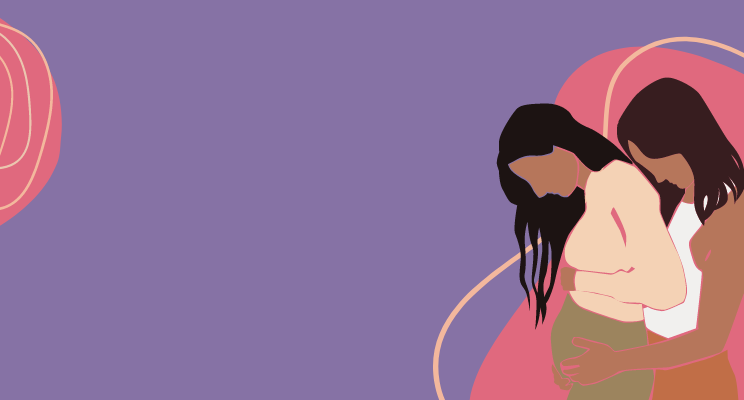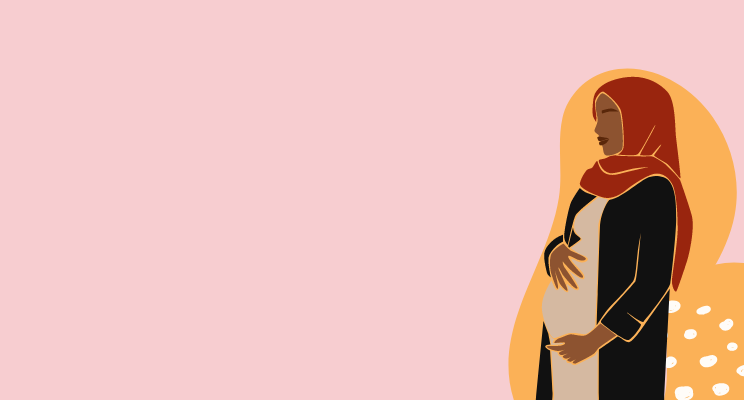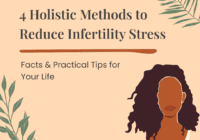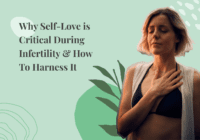Endometriosis affects about 10% of women and girls of reproductive age globally. Although its impacts can be devastating, researchers and medical professionals do not invest nearly enough in researching or treating the disease.
In a candid interview with a member of our team, Dr. Tanya Williams Fertility Centre patient Marissa shares her journey with endometriosis, the ways in which current care is failing women, and her advice to other women suffering from endo.
What is Endometriosis?
Endometriosis is a disease that occurs when uterine lining-like tissue grows outside of the uterus. This tissue grows most often on the fallopian tubes, ovaries and some of the pelvic region, but can also appear elsewhere in the body, for example the diaphragm and lungs.
The chronic disease can cause severe pain during periods, sexual intercourse, bowel movements, and/or urination, as well as chronic pelvic pain. Endometriosis can affect many systems in the body, causing symptoms such as abdominal bloating, nausea, fatigue, and sometimes depression and anxiety. Perhaps one of the most significant impacts of endometriosis on women is its potential to cause infertility.
Marissa’s Story
What was your journey to diagnosis with endometriosis?
Since I was 10 years old, I’ve had horrible periods. I remember one day my mom’s friend invited me to work at a farmer’s market with her, and I actually had to leave because of the pain. I thought it was normal, and that I had to push through because it was “just my period”.
In University, my pain got much worse, because endometriosis and stress are not friends. I started to realize my periods were much different from everyone else’s. At 21, I finally went to a gynecologist where I was living in Jamaica at the time. He was an old man, and he told me, “you probably have endometriosis” as if it were a common cold.
After university, as I began contemplating marriage and children, I googled endometriosis. When I learned it could cause infertility, I went back to my doctor, because I really wanted kids. They brushed me off because I wasn’t ready for kids yet, and besides, infertility was not extremely common. The only solution they offered was birth control, which didn’t really help.
Cycle after cycle, it was getting worse. It moved from period pain to constant pelvic pain. I sometimes felt as if someone was stabbing me. I was crying every period and ready to have a hysterectomy. But no one offered me anything to fix it. Since I was single and wasn’t trying to conceive, no one could help me.
I moved back to Canada, partly to tackle it. Relaying information between doctors in Jamaica and Canada was a nightmare. One never believed the other. Finally in 2018 I had a laparoscopy. They saw that my tubes were fully blocked, there was endometriosis on my bladder, and the right side of my reproductive system was scarred. Finally, I knew I wasn’t crazy. The pain was real, it did exist.
What does endometriosis feel like for you? How does it impact your life?
People don’t realize that endometriosis is not isolated to five days of pain in a month. The week before my period, I have a lot of symptoms. During my period, I’m out of it for 2 weeks. It’s a daily battle, and it gets much worse the longer you live with it.
My body’s constant stress causes me to struggle with insomnia. I have debilitating pain in my shoulder, chest, and leg because of the endometrial tissue outside of my pelvis and the pain radiates to these areas. Throughout the two weeks of my period, I have to clench my hand in pain while peeing due to my inflamed bladder. My endometriosis even caused my appendix to rupture. When it happened, I had developed such a high tolerance to pain that I mistook it for just my period.
But Endometriosis is so much more than period pain. It affects every aspect of my life. I almost get depressed when my period is coming. It feels like I don’t know what to do. I can’t commit to things because I may or may not be able to move. You can lose friends and relationships arguing with your partner because you can’t get pregnant, or you’re in too much pain to have sex.
What’s been your experience with seeking care?
My experience with treatment is that it doesn’t feel like anyone cares. Society disrespects women’s health greatly.It was the first on the chopping block when COVID hit. They canceled all the endometriosis surgeries, extending the wait even further.
In my case, you had to wait a year for a 5-minute phone call with the best specialist. You then waited another 7 months to see him in person. If he thought you needed surgery, his waitlist was 1.5 years long.
But what’s worse is that there’s no compassion in dealing with it. Infertility is a very emotional thing for women. Our reproductive organs are literally failing us, and there’s the very real possibility that we won’t have children. But the healthcare system deals with it like a common cold. For the specialist appointment, they send you to a ward filled with pregnant women and a wall of babies, all while you’re battling infertility.
How did you feel?
I had spent 7 months waiting for this appointment, expecting to finally get the surgery that would clear up my endometriosis and help my fertility. Then, in 10 minutes, they told me that any surgery to remove the endometrial tissue would leave too much scar tissue for me to conceive. Essentially, they informed me that there was virtually no hope for having kids, and the doctor left the office while I cried.
I felt very helpless, even tricked by medical practitioners, who made endometriosis seem like not a big deal. Medical professionals barely treat it as an illness, yet its progression in people has the potential to ruin lives. It should have been stated at age 21 that this is a chronic illness, not something to “go home and rest off”.
1 in 10 women have endometriosis, but there are no programs or financial support. Luckily, IVF is covered in Ontario, but it’s a long process to get there as you have to prove everything else doesn’t work. Where is the support for all the women dealing with this debilitating disease that causes infertility? Why isn’t egg freezing covered for women with endometriosis? I believe if men had this issue, there would be support offered.
How has endometriosis affected your journey with fertility?
When my partner and I started trying to conceive, it wasn’t working. There wasn’t much information available online at the time, but I knew that endometriosis could cause infertility. In 2021, I was referred to Dr. Tanya Williams Fertility Centre. As we started the investigations it became evident that something was very wrong. I couldn’t naturally conceive.
As I started fertility treatments, my endometriosis got progressively worse. Naturally, I had to cease all my endometriosis treatments, which aim to eliminate estrogen from the body, because they contradict fertility treatments, which necessitate higher estrogen levels. But endometriosis is a double-edged sword. You’re damned if you do, and damned if you don’t.
What treatments have worked for you?
I’ve tried so many things, and it’s not always easy or intuitive to find solutions. For example, strength training and HIIT workouts improve the symptoms of endometriosis usually, but in some cases, can make endometriosis symptoms worse, because the body is already stressed.
The only hope I’ve been given is since going to Dr. Tanya Williams’ clinic, because they take a holistic approach, and they do very detailed testing. I’ve started working with a Nutritionist to change what I eat and start taking supplements to manage the disease, which really helps. I believe what you eat strongly affects how your endometriosis reacts. When I was in Ghana eating completely different food than usual, I had my best period yet. Acupuncture has worked for me, and is proven to help people with endometriosis because Chinese medicine puts women at the forefront.
Unfortunately, not everyone has the resources to do this, because it’s a very expensive process. I probably spend $350 on supplements a month. But it’s important to manage the disease because if it goes unchecked, you can have pain all over your body for life, with nothing to be done about it.But managing the disease is important because unchecked, it can lead to lifelong pain throughout your body, with no viable solutions available.
What do you want other women with endometriosis to know?
My goal in sharing my story is to encourage women who get diagnosed early to seek holistic nutrition and look for alternative ways of handling this disease. Attack it from the inside. Nutrition, exercise, meditation. Both fertility and endometriosis need to be tackled from each of those standpoints. Dr. Williams’ clinic is great at this holistic thinking, but many women won’t find their way to a clinic like this. A lot of women are walking around with issues that may affect their fertility, but they don’t know it because they don’t check. I believe healthcare should be more proactive. Had I gotten this advice at 21, my endometriosis may not have progressed as much as it did.
Endometriosis is also a mental battle. Most women I know with endometriosis are struggling to feel sane. I joined a free support group called Endo Events, and that’s really helped my mental health. I recommend it to anyone struggling with endo. You don’t want anyone else to be going through it, but having people who understand you is huge.
Finally, stop hiding because endo is a “woman’s issue”. We need to start talking about women’s issues. That’s why I’ll tell my story to anyone who’ll listen. And if anyone reading this is struggling with endometriosis and wants to talk to someone, I’ll happily be that person.
Resources
- Endometriosis Events (@endoevents | endometriosisevents.org) – Raise awareness and educate for endometriosis. Host fundraising events in the GTA & Canada. Facilitate monthly support groups. Send an email to info@endometriosisevents.org .
- Endo Black Inc. (@endo_black | endoblack.org) – Advocate for Black women & WOC affected by endometriosis. Provide support, resources, and a blog.
- somedays (@getsomedays | getsomedays.com) – Company that sells period care bundles. Campaigned during endometriosis awareness month.
- Endo Girls Blog (@endogirlsblog | endogirlblog.com) – Patient Advocates who help others receive proper care. The account has educational information and encourages patients to advocate for the care they deserve.
Discover more related blogs from Dr. Tanya Williams Fertility Centre:
The Vaginal and Uterine Microbiome: A Window into Fertility and Vaginal Health
The Hidden Struggles of Black Women with Infertility: Three Women’s Stories






